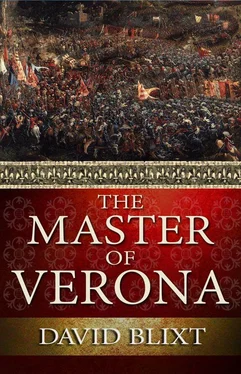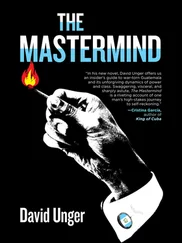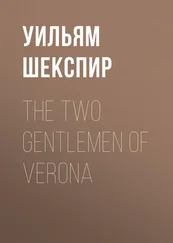David Blixt - The Master of Verona
Здесь есть возможность читать онлайн «David Blixt - The Master of Verona» весь текст электронной книги совершенно бесплатно (целиком полную версию без сокращений). В некоторых случаях можно слушать аудио, скачать через торрент в формате fb2 и присутствует краткое содержание. Год выпуска: 2012, Издательство: Sordelet Ink, Жанр: Исторические приключения, на английском языке. Описание произведения, (предисловие) а так же отзывы посетителей доступны на портале библиотеки ЛибКат.
- Название:The Master of Verona
- Автор:
- Издательство:Sordelet Ink
- Жанр:
- Год:2012
- ISBN:нет данных
- Рейтинг книги:5 / 5. Голосов: 1
-
Избранное:Добавить в избранное
- Отзывы:
-
Ваша оценка:
- 100
- 1
- 2
- 3
- 4
- 5
The Master of Verona: краткое содержание, описание и аннотация
Предлагаем к чтению аннотацию, описание, краткое содержание или предисловие (зависит от того, что написал сам автор книги «The Master of Verona»). Если вы не нашли необходимую информацию о книге — напишите в комментариях, мы постараемся отыскать её.
The Master of Verona — читать онлайн бесплатно полную книгу (весь текст) целиком
Ниже представлен текст книги, разбитый по страницам. Система сохранения места последней прочитанной страницы, позволяет с удобством читать онлайн бесплатно книгу «The Master of Verona», без необходимости каждый раз заново искать на чём Вы остановились. Поставьте закладку, и сможете в любой момент перейти на страницу, на которой закончили чтение.
Интервал:
Закладка:
All of a sudden the suburbs were upon them, the disposable homes, shops, and warehouses of those not wealthy enough to buy property inside the city walls. But already it smelled like a city. Pietro found it strange that the smell of urine and feces was a familiar comfort, but he'd lived in cities all his life. Florence, Paris, Pisa.
As the carriage slowed to a walk, then stopped, Pietro's father roused. "What's happening?"
"I think we're outside the city gates, father."
"Excellent, excellent," said the poet sleepily. "I was so consumed with composing the encounter with Cato — I told you about Cato? Good — I lost all track of our travels. Open the curtains. And wake your brother!"
Their escort was hailed by the guard at the gate. The escort shouted out the names of the passengers — one name, really, followed by "and his sons!" The city's guards acknowledged the claim and came forward to confirm the number of passengers in the carriage. And, Pietro knew, to gawk a little at his father.
"It is you, then?" asked one.
"I thought you'd have Virgil with you," said another. Pietro hoped he was joking.
Dante smiled his fool's smile. "You didn't recognize him? He's the coach driver." One guard actually looked, then laughed in an abashed way. The poet passed a few more words with the guards, and one of them made a comment that he thought witty until Dante sighed. "Yes, yes. Hellfire singed my beard black. My sons are tired. May we enter?"
They were delayed while word was sent ahead and the gate was opened. Then the coach resumed its course, passing into the dark archway that led into the city. When Dante recognized a church or a house, he named it.
All at once Dante smacked his hands together and cried, "Look! Look!"
Pietro and Poco twisted around to see where he was pointing. Out of the darkness Pietro could make out an arch. Then another, and another. Arches above arches. Then the torches revealed enough of the structure for Pietro to guess what it was. The only thing it could be.
"The Arena!" laughed Poco. "The Roman Arena!"
"It's still in use," proclaimed Dante as proudly as if he'd built it. "Now that they've evicted the squatters and cleaned it out, they can use it for sport again. And theatre," he added sourly.
Quickly they were past it, but Pietro kept picturing it in his mind's eye until the coach came to a halt. The driver called down, "The full stop!" Dante snorted. Everyone itched to display their wit for the master poet.
A footman opened the coach door and Pietro poked his head out. Word of their arrival must have spread faster than fire. A crowd of men, women, and children, grew larger every second. After two years of traveling on foot, of leaving their hats on posts in each new city they came to until someone lifted them, thus offering lodging and food, Pietro still wasn't used to his father's newfound fame.
Stepping out of the coach, he made sure his hat was at the proper angle. A present from the lord of Lucca, it was Pietro's only expensive garment. But even in his fancy hat with the long feather he heard the crowd's sigh of disappointment. He didn't take it personally. Instead, he turned to hold out his arm to his father.
Dante's long fingers grasped Pietro's outstretched arm, putting more pressure on his son's flesh than he showed. As his feet touched the stones of the square the crowd took a single step back, pressing the rearmost hard against the walls. They were gathered to glimpse Dante, an event Pietro guessed they'd tell their friends of while making the sign to ward off evil. The old man was evil, but not in that way.
"Fool carriages," muttered Dante. "Never get cramped like this on a horse."
Jacopo had popped out of the other side and now came around the back of the carriage, an idiot grin on his face. With a word to the porters to stow their baggage, they followed a beckoning steward. The awed crowd parted for them.
Following the steward's lamp, they passed under an archway with a massive curved bone dangling from it. "La Costa," chuckled Dante. "I had forgotten. That bone is the remains of an ancient monster that the city rose up and killed in olden times. It marks the line between the Piazza delle Erbe to the Piazza della Signoria." The marketplace, the civic centre.
The alleyway opened out into a wide piazza enclosed all about by buildings both new and old. The whole square was done up in cloth of gold and silken banners that shimmered in the torchlight. Below this finery were Verona's best and brightest. Dressed in fine gonellas or the more modern (and revealing) doublets, these wealthy nobles and upper crust now stood by as Dante Alaghieri joined their ranks.
The buildings, ornaments, and men were all impressive, but Pietro's eyes were drawn to a central pillar flying a banner. A leap of torchlight caught the flapping flag, revealing an embroidered five-runged ladder. On the topmost rung perched an eagle, its imperial beak bearing a laurel wreath. At the ladder's base was a snarling hound.
Il Veltro . The Greyhound.
Suddenly the crowd parted to reveal a man standing at the center of the square, looking like a god on earth. Massively tall, yet thin as a corded whip, his clothes were of expensive simplicity — a light-coloured linen shirt with a wide collar that came to two triangular points far below his neck. Over this he wore a burgundy farsetto , a leather doublet of the finest tanning, soft yet shimmery. Instead of common leather ties it bore six silver clasps down its front. His hose, too, were dark, a wine-red close to black. Tall boots reached his knee, the soft leather rolled back to create a wide double band about his calf. He wore no hat, but was crowned with a mane of chestnut hair with streaks of blond that, catching echoes of the brands, danced like fire.
Yet it was his eyes that most struck Pietro. Bluer than the midday sky, sharper than a hawk's — unearthly. At their corners laughter lurked like angels at the dawn of the world.
Cangrande della Scala, the master of Verona, walked forward with his arms outstretched to greet the greatest poor man in all the world. a man whose only wealth was language.
Releasing Pietro's arm and drawing himself upright, Dante walked with dignity to the center of the square. He took off his hat with the lappets and, just as he had done a hundred times during his exile, placed it at the base of the plinth at the center of the square. The silent gesture was eloquence itself. From Dante the crowd might have expected speeches. But Pietro's father had a keen sense of drama.
Pietro watched with the rest as Cangrande stooped for the limp old-fashioned cap. As he rose, Pietro caught his first glimpse of Cangrande's famous smile, his allegria , as the lord of Verona twirled the hat between his fingers. "Well met, poet."
"Well come, at least," said Dante. "If not well met."
Cangrande threw back his head and roared with laughter. He waved a hand and music erupted from some corner of the square. Under its cover Dante spoke. Pietro was close enough to hear. "It is good to see you, my lord." The poet bobbed his chin at the ornate decorations all around the square. "You shouldn't have."
"Sheer luck, I must confess! Our garlands are for tomorrow's happy wedlock. But I feel the hand of Fortune, as they are far better suited to grace your coming."
"Silver-tongued still," replied Dante. "Who is to marry?"
"My nephew, Cecchino." Cangrande gestured to a not-so-sober blond fellow, raising his voice as he did. "Tonight he takes his last hunt as a bachelor!"
Dante also pitched his voice to carry. "Hunt for what, lord?"
"For the hart, of course!" The crowd broke with laughter. Pietro wondered if they were indeed hunting deer, or girls — he'd heard of such things. But he spied a handsome young man, dark of hair, well dressed, who carried a small hawk. So, deer. Pietro was both relieved and disappointed. He was seventeen.
Читать дальшеИнтервал:
Закладка:
Похожие книги на «The Master of Verona»
Представляем Вашему вниманию похожие книги на «The Master of Verona» списком для выбора. Мы отобрали схожую по названию и смыслу литературу в надежде предоставить читателям больше вариантов отыскать новые, интересные, ещё непрочитанные произведения.
Обсуждение, отзывы о книге «The Master of Verona» и просто собственные мнения читателей. Оставьте ваши комментарии, напишите, что Вы думаете о произведении, его смысле или главных героях. Укажите что конкретно понравилось, а что нет, и почему Вы так считаете.












